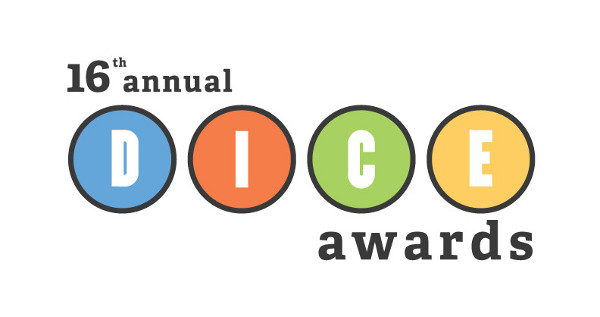
D.I.C.E, otherwise known as Design. Innovate. Communicate. Entertain. gushed forth some reflections on the state of video gaming, as well as giving us some great insider scoops and a few obligatory awards. D.I.C.E. summit is an annual event that brings together some of the biggest names in the gaming industry to reflect on developments and insights that impact game makers and players in a broad spectrum of ways. ENTV and Variety covered the event for the internet and have made the entire summit available online for free.
The summit started with several networking events such as Go-Karting, Golf, a Canyon Run at Red Rock and a happy hour followed by a poker tournament. The gaming community didn’t initially take me as the golfing and fun-run crowd but I guess you can’t beat the classics when it comes to networking.
After breakfast and a few quick comments by the Academy of Interactive Arts & Sciences (who host D.I.C.E.) President, Martin Rae, J.J. Abrams & Gabe Newell opened the summit with some amazing banter about the two different forms of story telling they have helped pioneer. In case you’ve some how missed it, they used the last 30 seconds of their keynote speech to mention a collaboration between the two for both a Half-Life movie and a Portal film.
Glen Schofield of Sledgehammer Games followed with day’s design keynote entitled ‘The Art of Research.’ Emphasising research and ditching ego from design, Glen framed his work in what he owes to the consumer. He also demonstrated how he practically applied inspiration he and his team found in the real world. If you’ve got a design based mind this is well worth a watch.
Another quick break split Glen from David Cage, the CEO of Quantic Dreams. Giving a fantastical speech, David talked about ‘The Peter Pan Syndrome’ and why the gaming industry needs to grow up. In 9 points he articulated what he considered to be childish attitudes that are constricting the continuing development of games to being relevant and mature.
Supergiant Games’ Studio Director Amir Rao talked about the necessary yet unloved skill involved in porting games across platforms. He comes to the conclusion that designing games that transfer well isn’t about making a game that operates with the same engine on every platform but about understanding the utility each platform brings to your game and working with that advantage.
This was followed by a panel discussion on ‘Disruption in the Mobile Frontier’ including Phil Larsen, David Edery & Julian Farrior which was moderated by Matt Lee Johnston. A relatively technical marketing conversation came from the panel and yet they still managed to carry across the message that their emphasis is great gaming.
After lunch there were 5 more presentations left for the first day of D.I.C.E. Opening the second session President of SyFy Mark Stern and Nick Beliaeff, the Production VP of Trion Worlds had a conversation about transmedia, or generating a fictional universe across multiple mediums. Nick took a lot of the time but both of them managed to convey the intriguing complexities in creating a closed narrative loop for their shared work in Defiance.
Schell Games’ Jesse Schell used really great visual language to discuss the ‘Secret Mechanisms’ in games. Surprisingly this speech wasn’t confined to mechanics in games, rather what makes us want to play games in certain spaces and for certain reasons. Adeptly using a lock and key metaphor, the key being the game and the lock being our personal ideas about happiness, Jesse wants designers to reconsider games in an enjoyment based economy.
Xaiver Poix, Managing Director of multiple arms within Ubisoft, used a virtual assistant from Rayman to help deliver a speech on unique uses of innovation at the launch of a console and cross platform integration. His discussion focused on taking gambols with innovation to reach gamers with unique skills, explaining his core thesis through the observation that many people are using multiple devices inconsistently in the same room as the main gaming device.
Ouya CEO Julie Uhrman spoke of the ‘Revenge of the Television,’ explaining its continuing presence and relevance as a result of our personal relationships with the medium. The importance of consoles is hampered by the dominance of the few core companies that produce them. Julie believes democratising this platform gives the ability to change the definitions of what a game can be, a definition that is provided to us by our over exposure to AAA titles.
Rounding out the day was Qualcomm’s VP of Product Management, Raj Talluri, who postulated on the future of mobile gaming. Indicating that gaming is quickly becoming one of the key criteria for choosing a smartphone, Raj explores why its massive uptake has forced innovation. He sees mobile games, mostly simple casual experiences for now, as a gateway to expand interest in varied genres in gaming to a new market.
That wraps up day one of D.I.C.E. Each of the videos linked also has an abridged version if you don’t want to sit through almost 5 hours of detailed presentations. A summary of day 2 will be available tomorrow.

